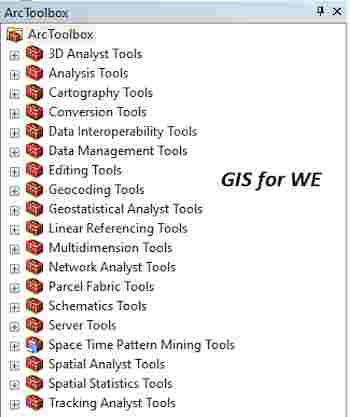Slice Tool
أداة الشريحة
ArcMap
ArcGIS
How to use Slice Tool in Arc Toolbox??
كيفية استخدام أداة الشريحة ؟؟
Path to access the toolمسار الوصول الى الأداة
:
Slice Tool, Reclass Toolset, Spatial Analyst Tools Toolbox

Slice
Slices or reclassifies
the range of values of the input cells into zones of equal interval, equal
area, or by natural breaks.
يقطع نطاق قيم خلايا الإدخال إلى شرائح أو يعيد
تصنيفها إلى مناطق ذات فاصل زمني متساوي أو منطقة متساوية أو بواسطة فواصل طبيعية.
1.
Input raster أدخل البيانات النقطية
The input raster to be
reclassified.
البيانات النقطية المراد إعادة تصنيفها.
Output raster
The output reclassified raster.
The output will always be of integer type.
Number of output zones
The number of zones to reclassify the input raster into.
When the slice method is EQUAL_AREA, the output raster will have the
defined number of zones, with a similar number of cells in each.
When EQUAL_INTERVAL is used, the output raster will have the defined
number of zones, each containing equal value ranges on the output raster.
When NATURAL_BREAKS is used, the output raster will have the defined
number of zones, with the number of cells in each determined by the class
breaks.
Slice method (optional)
The manner in which to slice the values in the input raster.
· EQUAL_INTERVAL—Determines the range of the input values and divides the
range into the specified number of output zones. Each zone on the sliced output
raster has the potential of having input cell values that have the same range
from the extremes. This is the default.
· EQUAL_AREA—Specifies that the input values will be divided into the
specified number of output zones, with each zone having a similar number of
cells. Each zone will represent a similar amount of area.
· NATURAL_BREAKS—Specifies that the classes will be based on natural
groupings inherent in the data. Break points are identified by choosing the
class breaks that best group similar values and that maximize the differences
between classes. The cell values are divided into classes whose boundaries are
set when there are relatively big jumps in the data values.
Base zone for output (optional)
Defines the lowest zone value on the output raster dataset.
The default value is 1.
2.
Output raster البيانات النقطية
المخرجة
The output reclassified
raster.
The output will always
be of integer type.
الناتج المعاد تصنيف النقطية.
سيكون الإخراج دائمًا من نوع عدد صحيح.
Number of output zones
The number of zones to reclassify the input raster into.
When the slice method is EQUAL_AREA, the output raster will have the
defined number of zones, with a similar number of cells in each.
When EQUAL_INTERVAL is used, the output raster will have the defined
number of zones, each containing equal value ranges on the output raster.
When NATURAL_BREAKS is used, the output raster will have the defined
number of zones, with the number of cells in each determined by the class
breaks.
Slice method (optional)
The manner in which to slice the values in the input raster.
· EQUAL_INTERVAL—Determines the range of the input values and divides the
range into the specified number of output zones. Each zone on the sliced output
raster has the potential of having input cell values that have the same range
from the extremes. This is the default.
· EQUAL_AREA—Specifies that the input values will be divided into the
specified number of output zones, with each zone having a similar number of
cells. Each zone will represent a similar amount of area.
· NATURAL_BREAKS—Specifies that the classes will be based on natural
groupings inherent in the data. Break points are identified by choosing the
class breaks that best group similar values and that maximize the differences
between classes. The cell values are divided into classes whose boundaries are
set when there are relatively big jumps in the data values.
Base zone for output (optional)
Defines the lowest zone value on the output raster dataset.
The default value is 1.
3.
Number of output zones عدد المناطق المخرجة
The number of zones to reclassify
the input raster into.
When the slice method is
EQUAL_AREA, the output raster will have the defined number of zones, with a
similar number of cells in each.
When EQUAL_INTERVAL is
used, the output raster will have the defined number of zones, each containing
equal value ranges on the output raster.
When NATURAL_BREAKS is
used, the output raster will have the defined number of zones, with the number
of cells in each determined by the class breaks.
عدد المناطق المراد تصنيف الإدخال النقطي إليها.
عندما تكون طريقة الشريحة هي EQUAL_AREA ، سيكون للخرج النقطي عدد محدد من المناطق ، مع عدد مماثل من الخلايا في كل منها.
عند استخدام EQUAL_INTERVAL ، سيكون للخرج النقطي عدد محدد من المناطق ، كل منها يحتوي على نطاقات قيم متساوية على البيانات النقطية للإخراج.
عند استخدام NATURAL_BREAKS ، سيكون للخرج النقطي عدد محدد من المناطق ، مع تحديد عدد الخلايا في كل منها بواسطة فواصل الفئات.
Slice method (optional)
The manner in which to slice the values in the input raster.
· EQUAL_INTERVAL—Determines the range of the input values and divides the
range into the specified number of output zones. Each zone on the sliced output
raster has the potential of having input cell values that have the same range
from the extremes. This is the default.
· EQUAL_AREA—Specifies that the input values will be divided into the
specified number of output zones, with each zone having a similar number of
cells. Each zone will represent a similar amount of area.
· NATURAL_BREAKS—Specifies that the classes will be based on natural
groupings inherent in the data. Break points are identified by choosing the
class breaks that best group similar values and that maximize the differences
between classes. The cell values are divided into classes whose boundaries are
set when there are relatively big jumps in the data values.
Base zone for output (optional)
Defines the lowest zone value on the output raster dataset.
The default value is 1.
4.
Slice method (optional) طريقة الشريحة (اختياري)
The manner in which to
slice the values in the input raster.
·
EQUAL_INTERVAL—Determines the range of the input values and
divides the range into the specified number of output zones. Each zone on the
sliced output raster has the potential of having input cell values that have
the same range from the extremes. This is the default.
·
EQUAL_AREA—Specifies that the input values will be divided into
the specified number of output zones, with each zone having a similar number of
cells. Each zone will represent a similar amount of area.
·
NATURAL_BREAKS—Specifies that the classes will be based on natural
groupings inherent in the data. Break points are identified by choosing the
class breaks that best group similar values and that maximize the differences
between classes. The cell values are divided into classes whose boundaries are
set when there are relatively big jumps in the data values.
طريقة الشريحة (اختياري)
الطريقة التي يتم بها تقسيم القيم في البيانات
النقطية للإدخال.
• EQUAL_INTERVAL - يحدد نطاق قيم الإدخال ويقسم النطاق إلى عدد محدد من مناطق
الإخراج. كل منطقة على شرائح الإخراج النقطية لديها القدرة على الحصول على قيم
خلية الإدخال التي لها نفس النطاق من المتطرفين. هذا هو الافتراضي.
• EQUAL_AREA - يحدد أن قيم الإدخال سيتم تقسيمها إلى عدد محدد من مناطق
الإخراج ، مع احتواء كل منطقة على عدد مماثل من الخلايا. ستمثل كل منطقة مساحة
مماثلة.
• NATURAL_BREAKS - يحدد أن الفئات ستستند إلى مجموعات طبيعية متأصلة في البيانات.
يتم تحديد نقاط الفاصل عن طريق اختيار فواصل الفصل التي تجمع أفضل القيم المتشابهة
والتي تزيد من الفروق بين الفئات. يتم تقسيم قيم الخلايا إلى فئات يتم تعيين
حدودها عند وجود قفزات كبيرة نسبيًا في قيم البيانات.
Base zone for output (optional)
Defines the lowest zone value on the output raster dataset.
The default value is 1.
5.
Base zone for output (optional) منطقة
القاعدة المخرجة (اختياري)
Defines the lowest zone
value on the output raster dataset.
The default value is 1.
يحدد أقل قيمة منطقة في مجموعة البيانات النقطية
للإخراج.
القيمة الافتراضية هي 1.
اليك صفحه ومجموعة على الفيس بوك لتعلم أكثر بما يخص نظم المعلومات الجغرافية (GIS) و برنامج ArcGIS Pro من خلال هذه الروابط:
مجموعة على الفيس بوك
ArcGIS Pro من
هنا.
مجموعة على الفيس بوك
GIS for WE - ArcGIS Pro من
هنا.صفحة الفيس بوك
GIS for WE من
هنا.





تعليقات
إرسال تعليق